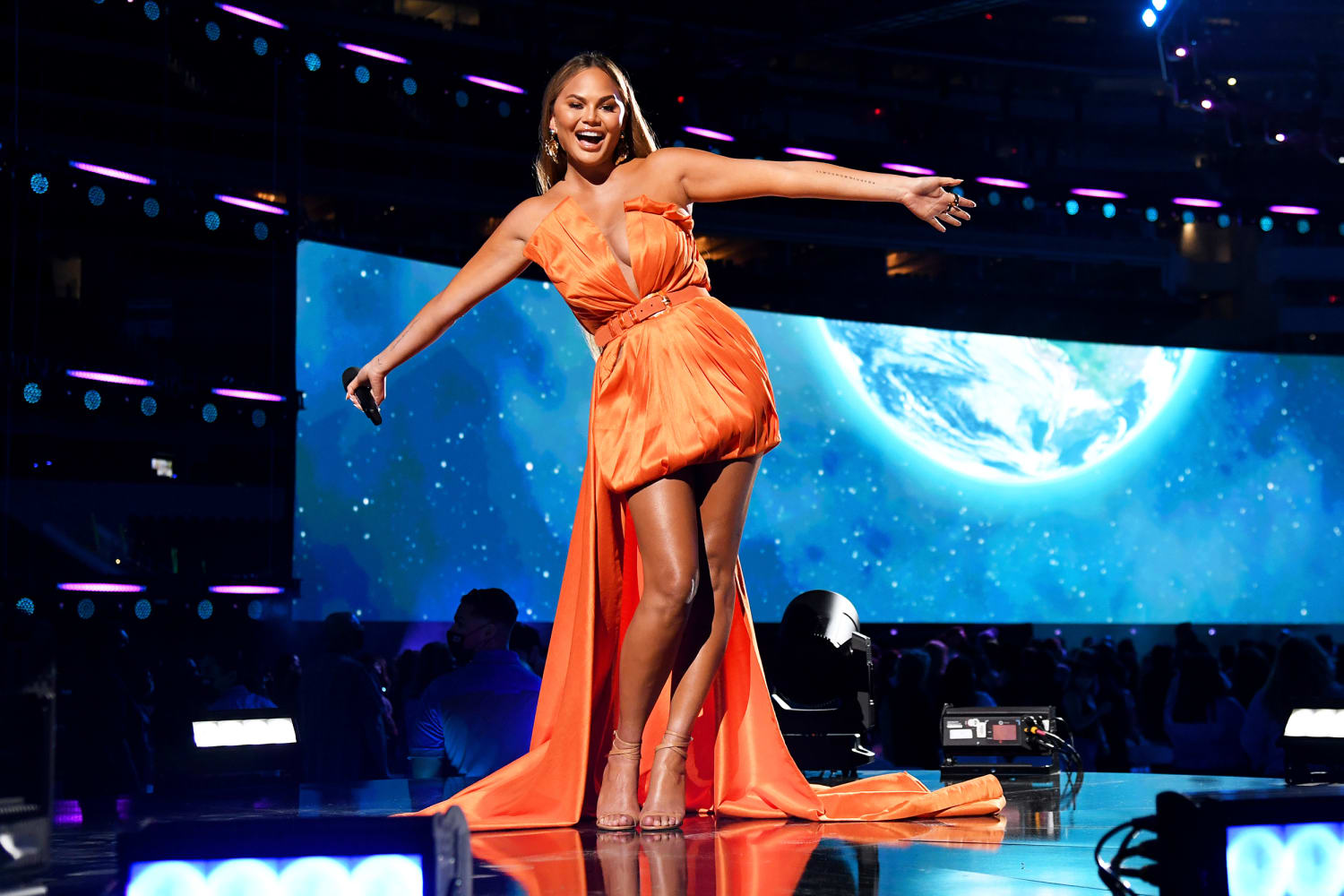There is no vaccine or booster that could protect us from the internet’s worst (and best) moments of 2021.
From Chrissy Teigen’s espoused (and failed) mission to quit Twitter to Nicki Minaj’s cousin’s friend’s genitals, no topic was off-limits in the dizzying rabbit hole of the internet this year.
Here are five cringeworthy internet moments from this year.
The (never-ending) Chrissy Teigen Twitter saga
To quit or not to quit Twitter? It’s a question Chrissy Teigen didn’t know the answer to earlier this year, either.
In March, the model publicly declared that she was quitting the social media platform because of its negative impact on her — only to return a month later.
“Turns out it feels TERRIBLE to silence yourself and also no longer enjoy belly chuckles randomly throughout the day and also lose like 2000 friends at once lol,” she tweeted in April. “I choose to take the bad with the good!!”
Not long after, in June, Teigen found herself issuing a lengthy apology, which she posted to Medium and shared to her social media accounts, for what she described as her “past horrible tweets.”
The apology came after the model Courtney Stodden, who uses they/them pronouns, described cruel tweets and direct messages they received from Teigen when they were still a teenager in a May story published by The Daily Beast.
Teigen told “TODAY” show co-host Hoda Kotb in October that she had since taken a step back to “grow and learn” from the experience.
Being on the internet at the time, she said, “didn’t feel like anybody was going to read” her messages, she explained. “I didn’t really think about the impact and the person on the other side.”
That Nicki Minaj tweet ahead of the Met Gala
Rapper Nicki Minaj didn’t have to show up at the red carpet to steal the spotlight at this year’s Met Gala.
Ahead of the annual fundraiser, Minaj sent the internet into a frenzy after sharing that she was not attending the event because of the Covid-19 vaccine requirement.
She later shared a series of bizarre claims about the shots, including a story from a cousin abroad who said he was declining to be vaccinated “cuz his friend got it & became impotent.”
The rapper’s claim prompted a statement from Dr. Anthony Fauci, the nation’s leading infectious disease expert, who said there was “no evidence” that the Covid vaccine made men impotent.
Even the health minister of Trinidad and Tobago felt compelled to debunk the story from Minaj, who was born in Trinidad.
“We had to expend a lot of time and energy yesterday … because suppose it was true, we don’t want to be accused of just ignoring it,” Terrence Deyalsingh said during a Covid news briefing. “But we spent a lot of time yesterday trying to track it down. So far, it has not proven to be true in Trinidad or … anywhere else in the world.”
‘Bean Dad’ and ‘Couch Guy’
There appeared to be two men who dominated the internet zeitgeist at the beginning and end of the year: “Bean Dad” and “Couch Guy.”
On the second day of the year, John Roderick, known as “Bean Dad,” tweeted a thread about his daughter struggling for hours to open a can of beans without help, saying he only offered her vague hints as she tried to teach herself how to use a can opener.
The thread quickly went viral after a number of critics suggested he was being a bad parent. Roderick deactivated his Twitter account and then posted an apology to his website as the scrutiny intensified and his old racist and antisemitic tweets resurfaced.
Elsewhere, on TikTok, another man dominated the internet in October after a video showed his long-distance girlfriend surprising him.
The video, posted Sept. 21 by Lauren Zarras, shows her boyfriend, Robert “Robbie” McCoy, now known by the internet as “Couch Guy,” surrounded by friends and sitting on a couch next to three other women as Zarras walks into the room.
Many people suggested McCoy was, in fact, not happy to see Zarras, with some going so far as to accuse him of being unfaithful to her.
“Couch Guy” became the latest example of how toxic internet sleuthing can be, as some TikTokers began meticulously combing through the video, zooming in and slowing down parts to see whether McCoy’s phone was being held by a woman next to him on the couch and analyzing the reactions of the other people in the room.
In December, McCoy penned an essay published in Slate detailing his experience dealing with the internet sleuths.
“While the Couch Guy meme was lighthearted on its surface, it turned menacing as TikTok users obsessively invaded the lives of Lauren, our friends, and me—people with no previous desire for internet fame, let alone infamy,” he wrote.
That time a network tried to make a competition show about activism
In September, CBS announced a competition show about activism called “The Activist,”hosted by celebrities Usher, Priyanka Chopra Jonas and Julianne Hough.
The premise? Six activists from around the world would compete against each other (in missions, media stunts, digital campaigns and community events) to promote health, educational and environmental causes. Their success, according to CBS, would have been measured by online engagement, social metrics and input from the show’s hosts.
In its initial news release, the show was described as one that “will inspire real change.” But some organizers criticized the show’s premise, accusing CBS of diminishing and profiting off the work of organizers and activists by making it more digestible and consumable for a larger mainstream audience.
CBS quickly announced it would retool the show, making it a documentary special rather than a competition series.
“‘The Activist’ was designed to show a wide audience the passion, long hours, and ingenuity that activists put into changing the world, hopefully inspiring others to do the same,” CBS and producing partners Global Citizen and Live Nation announced in a joint statement. “However, it has become apparent the format of the show as announced distracts from the vital work these incredible activists do in their communities every day. The push for global change is not a competition and requires a global effort.”
“As a result,” the statement continued, “we are changing the format to remove the competitive element and reimagining the concept into a primetime documentary special (air date to be announced).”
The virality of cheugy
2021 saw the rise of the word “cheugy” — a term used to describe something basic and outdated.
Cheugy is a word most primarily used by Gen Z to describe (and mock) many things millennials enjoy. It gained popularity after The New York Times interviewed then-23-year-old Gaby Rasson, a software developer in Los Angeles, who coined the neologism.
But after photos posted on Twitter showed a bank using cheugy in a marketing campaign, it appeared that the term itself became … cheugy.
The jury is out on whether the word cheugy is cheugy. But one thing’s for sure: Cheugy was one of the most mispronounced words of 2021, according to the U.S. Captioning Company.
Source: | This article originally belongs to Nbcnews.com











